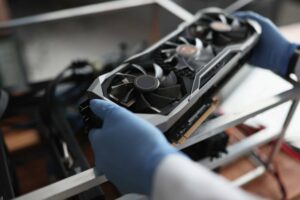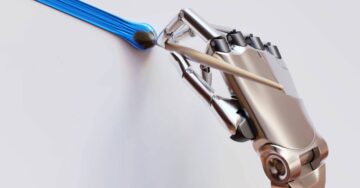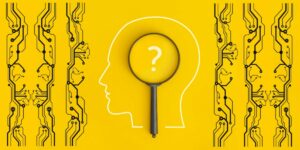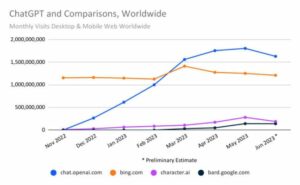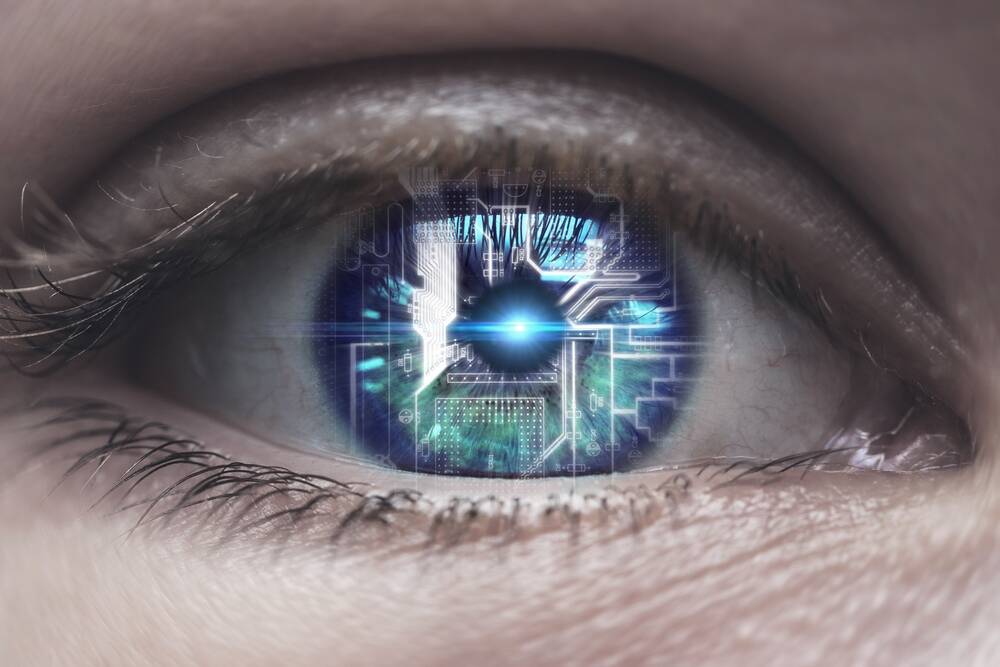
Human labor can accomplish some jobs more cheaply than computer vision systems, according to a study led by researchers from the Massachusetts Institute of Technology.
Scientists from the Institute, IBM, and the Productivity Institute, surveyed workers to determine what capabilities computers would need in order to do their tasks, added up the cost of building and installing such AI systems, and then compared this to human salaries.
“We find that at today’s costs US businesses would choose not to automate most vision tasks that have ‘AI Exposure,’ and that only 23 [percent] of worker wages being paid for vision tasks would be attractive to automate,” the researchers concluded [PDF].
In other words, computer vision systems are too expensive to replace employees in over three quarters of jobs they considered.
Machines with sensors and cameras running AI algorithms can be pricey to train, deploy, and maintain, and aren’t always worth it if they only perform a particular chore. One example cited in the paper considers quality assurance assessments that inspect items for flaws and discarding defects.
For example, a bakery could employ and train a computer vision system to check if the ingredients it uses have gone bad.
The report cites US Department of Labor’s Bureau of Labor Statistics O*NET data, which estimates that only six percent of a baker’s job includes checking the quality of food. If a small business employs five bakers each paid roughly $48,000 a year, each worker is paid $2,280 to inspect ingredients per year. Multiplying that by five is $14,400.
Estimates suggest AI can’t beat that cost.
“This indicates a more gradual integration of AI into various sectors, contrasting with the often hypothesized rapid AI-driven job displacement,” Neil Thompson, co-author of the study and a principal investigator at MIT Computer Science & Artificial Intelligence Laboratory, explained in a statement.
The team analysed 420 vision tasks and surveyed 5-9 workers for each task, Thompson told The Register.
So, are our jobs safe? Not necessarily
While this paper is sweet news for bakers, fear that generative AI will replace knowledge workers is widespread and justifiable because large language models (LLMs) that handle writing chores can run on commodity laptops – no fancy cameras required.
LLMs can easily be fine-tuned with custom data, and are capable of performing numerous, more general tasks.
Opinions are divided over whether or not AI will take people’s jobs. Some believe the technology will introduce new types of employment, while others reckon that certain roles will be made obsolete. The jury’s still out. ®
- SEO Powered Content & PR Distribution. Get Amplified Today.
- PlatoData.Network Vertical Generative Ai. Empower Yourself. Access Here.
- PlatoAiStream. Web3 Intelligence. Knowledge Amplified. Access Here.
- PlatoESG. Carbon, CleanTech, Energy, Environment, Solar, Waste Management. Access Here.
- PlatoHealth. Biotech and Clinical Trials Intelligence. Access Here.
- Source: https://go.theregister.com/feed/www.theregister.com/2024/01/22/mit_ai_jobs_report/
- :is
- :not
- $UP
- 000
- 23
- 400
- 420
- 7
- a
- accomplish
- According
- added
- AI
- AI systems
- algorithms
- always
- and
- ARE
- artificial
- artificial intelligence
- assessments
- assurance
- At
- attractive
- automate
- Bad
- baker
- BE
- beat
- because
- being
- believe
- Building
- Bureau
- bureau of labor statistics
- business
- businesses
- by
- cameras
- CAN
- capabilities
- capable
- certain
- cheaper
- check
- checking
- Choose
- cited
- CO
- Co-Author
- commodity
- compared
- computer
- computer science
- Computer Vision
- computers
- considered
- considers
- Cost
- Costs
- could
- custom
- data
- Department
- Department of Labor
- deploy
- Determine
- displacement
- divided
- do
- each
- easily
- employees
- employment
- employs
- estimates
- example
- expensive
- Exposure
- Find
- finds
- five
- flaws
- food
- For
- from
- General
- generative
- Generative AI
- gone
- gradual
- handle
- Have
- HTTPS
- human
- Humans
- IBM
- if
- in
- includes
- indicates
- installing
- Institute
- integration
- Intelligence
- into
- introduce
- IT
- items
- Job
- Jobs
- jpg
- labor
- laboratory
- language
- laptops
- large
- Led
- made
- maintain
- massachusetts
- Massachusetts Institute of technology
- MIT
- models
- more
- most
- multiplying
- Need
- New
- news
- no
- numerous
- obsolete
- of
- often
- on
- ONE
- only
- or
- order
- Other
- Others
- our
- out
- over
- paid
- Paper
- particular
- People
- per
- percent
- Perform
- performing
- plato
- Plato Data Intelligence
- PlatoData
- Principal
- productivity
- quality
- rapid
- replace
- report
- required
- researchers
- roles
- roughly
- Run
- running
- s
- safe
- salaries
- Science
- Sectors
- sensors
- Sight
- SIX
- small
- small business
- some
- Statement
- statistics
- Still
- Study
- such
- suggest
- surveyed
- sweet
- system
- Systems
- Take
- Task
- tasks
- team
- Technology
- than
- that
- The
- their
- then
- they
- this
- thompson
- three
- to
- today
- told
- too
- Train
- types
- us
- uses
- various
- vision
- vision systems
- wages
- we
- What
- whether
- which
- while
- widespread
- will
- with
- words
- worker
- workers
- worth
- would
- writing
- year
- zephyrnet


